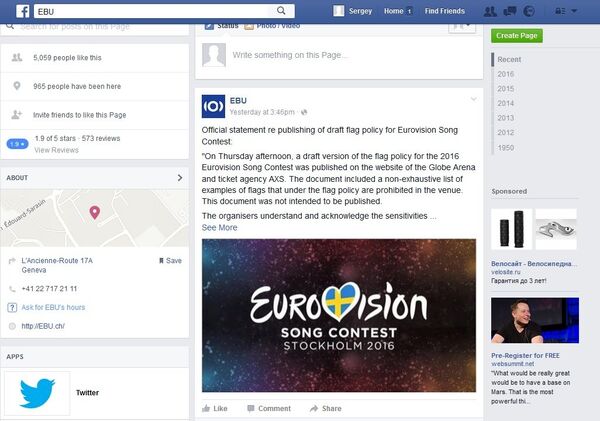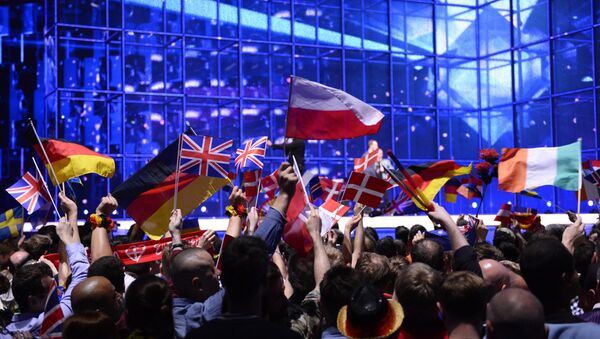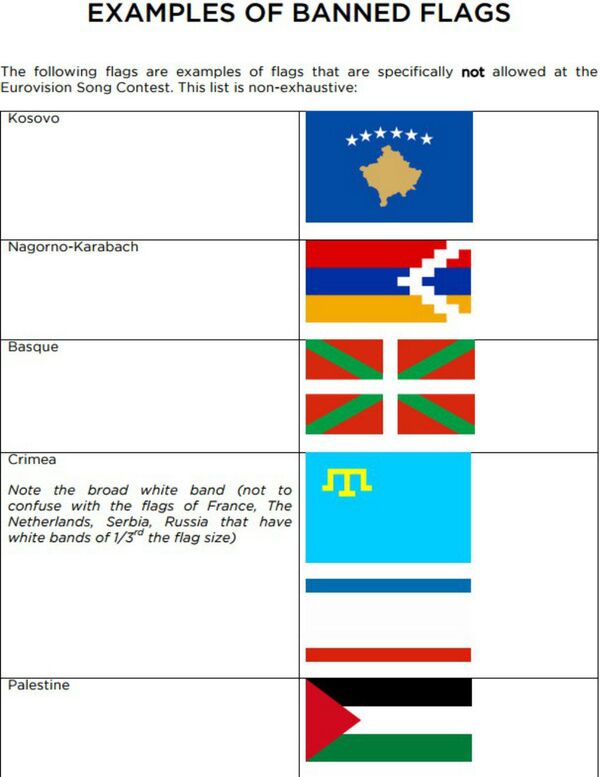The recently unveiled 'official flag policy' of the European Broadcasting Union (EBU), the consortium of public television networks in Europe that will be producing the Eurovision song show, has become the subject of severe criticism.
As well as the usual size restrictions, there is now a list of specifically prohibited flags – and that’s left some groups very unhappy.
The EBU has limited it to flags of the 42 participating countries, as well as recent participants. Also allowed are the national flags of other countries, as long as that country is a member of the United Nations.
However, a number of flags are banned, including local, regional or provincial flags, ones with commercial messages, political or religious statements, flags of disputed territories, offensive statements, non-English statements, and other high objects (such as selfie sticks) that may obstruct views.
We request an urgent meeting to the Swedish embassy. We want a rectifitation https://t.co/CsCjLWd1j0 pic.twitter.com/UdUnNwrP8L
— EH Bildu Congreso (@ehbilducongreso) 28 апреля 2016 г.
The draft version of the flag policy for the 2016 Eurovision Song Contest was published on the website of the Globe Arena with examples of the banned flags of local, regional, provincial or disputed territories which has been the cause bit of controversy for some affected areas.
The list included the Kosovo, Crimea, Palestine, Nagorno-Karabakh and Basque flags, alongside with the flag of the Islamic State terrorist group.
Following the release, the main Basque political party, EH Bildu (which stands for Basque Country Unite coalition) has already made a complaint to the Swedish embassy, demanding “a rectification.”
Dmitry Polonsky, Vice-Prime Minister of the Crimean Government has called it “flawed” to list banned flags alongside the Daesh terrorists' emblem.
На Євробаченні заборонили кримсько-татарський прапор. Тобто адміністратори Євробачення що, визнають анексію Криму?! Тоді це "Рашобачення"!
— В'ячеслав Кириленко (@KyrylenkoVyach) 29 апреля 2016 г.
Ukrainian Vice-Prime Minister Kyrylenko has lashed out at the Eurovision song contest, wondering whether it has recognized the reunification of Crimea and suggested calling the contest “Russiavision” instead.
Following the complaint, the EBU has asked the Globe Arena and AXS to immediately remove the document that includes the flag examples, and to publish an official document without the examples, instead.

“The document included a non-exhaustive list of examples of flags that under the flag policy are prohibited in the venue. This document was not intended to be published,” it said in a post on its Facebook page.
“The organizers understand and acknowledge the sensitivities of presenting a selection of flags of organizations and territories, each of them of very different nature. The organizers apologize to everyone who feels offended by the list,” it added.



